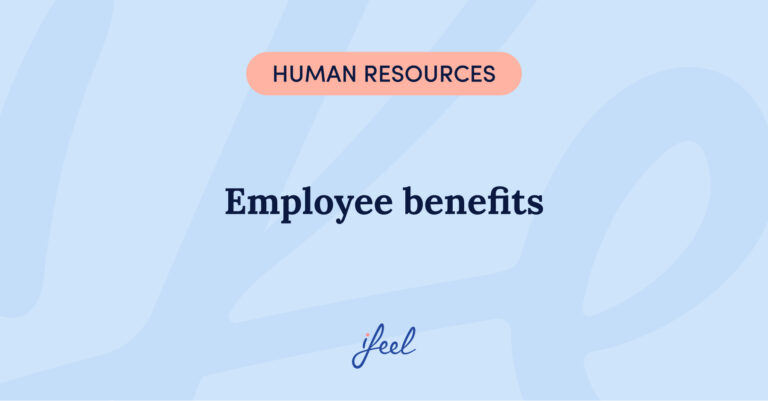It’s no secret that technology is here to change everything, and the insurance industry is no exception. Although the industry has been promoting the same product type for years, technological innovations bring multiple benefits and advances to the sector.
Technology in insurance has revolutionised the way insurance companies operate and offer their services. From innovations in artificial intelligence (AI) to process automation, these new technologies are redefining the products and services offered by insurers.
These changes respond to the need to adapt in the midst of a changing marketplace, where technology has been at the forefront over the last decade. Through the use of technology, insurers have improved in terms of efficiency and personalisation, increasing customer satisfaction. Let’s take a look at some of the major technological innovations that are transforming the industry.

Benefits of using technology in insurance
In today’s fast-paced world, it is undeniable that technological advances have significantly impacted the business world. And, for the insurance world, that impact has been beneficial.
In fact, according to KPMG’s research, 96% of insurance CEOs indicate an increase in digitisation. This data reflects the impact that technology in insurance has had on insurers, and illustrates a bright future for those companies that choose to implement it. Let’s take a look at what changes insurance technology has brought:
1. Claims automation
Claims automation is one area where artificial intelligence is having a significant impact in the field of technology in insurance. Traditionally, claims processing was a long and laborious, with multiple manual steps that could delay payments and lead to customer dissatisfaction.
Today, technology in insurance allows for automated claims assessment and processing, significantly reducing the time it takes to resolve claims. This advancement improves the customer experience and reduces operational costs for insurers.
2. Policy customisation
Advanced algorithms allow insurers to offer personalised policies based on specific customer data and behaviours.
In this sense, artificial intelligence can analyse large volumes of data to identify individual patterns and preferences, facilitating the creation of insurance products better tailored to each customer’s needs. This personalisation increases customer satisfaction and can improve retention and loyalty.
SCOR’s global presence influenced our choice of a digital and scalable mental well-being solution like ifeel. The global reach of ifeel aligns seamlessly with our diverse workforce worldwide. ifeel’s scalability and digital format were decisive factors in ensuring accessibility and effectiveness across various cultures and regions.
— Sabrina Kruse, Head of HR EMEA & Group Head of Diversity, Inclusion and Engagement in SCOR.
3. Fraud prevention
Fraud prevention is another area where technology in insurance is making a crucial difference.
Insurance companies can use AI-based systems to detect suspicious patterns in claims and transactions. Within these, using so-called Hybrid Transactional/Analytical Processing (HTAP) can transform how data is analysed to improve agility and decision-making.
These systems can identify early fraudulent activity that might go unnoticed by human analysts, helping to reduce losses and protect businesses and customers from illicit activity.
4. Chatbots and virtual assistants
Chatbots and virtual assistants are transforming insurance companies’ communication with customers. Based on natural language processing (NLP), these technology tools can handle routine requests, provide instant responses, and guide users through complex processes, ensuring immediacy and facilitating asynchronous communication to handle more customer communications at once.
Chatbots represent a great demonstration of how technology in insurance has advanced to improve the operational efficiency of systems, enabling insurance companies to offer a faster and more accessible service available 24 hours a day.
5. Predictive underwriting analytics
Predictive analytics is increasingly used to assess risks and determine prices more accurately and efficiently. By analysing historical and current data, the technology enables insurers to forecast future trends and behaviours, allowing them to adjust their underwriting and pricing policies proactively.
This ability to predict and respond to emerging risks improves underwriting accuracy and strengthens insurers’ competitive position in a changing market.
6. Mental health solutions for insurers
In addition to the aforementioned areas, technology in insurance companies has also led to implementing mental health solutions for policyholders, such as the one offered by ifeel.
Advances have shown that the alliance between health insurance and mental health is necessary. Implementing mental well-being solutions allows insurers to offer continuous and adaptive support, improving customer satisfaction and loyalty.
These mental health services, structured at different levels according to policyholders‘ needs, help reduce the frequency and costs of mental health-related claims by up to 40%, optimising insurers’ risk management.

Technology in insurance
At ifeel, we understand that digital transformation in the insurance industry is necessary to improve operational efficiency, enrich the user experience, and foster continuous innovation.
It is, therefore, timely for insurers to rely on experts to ensure that their product remains at the cutting edge. To assist in this process, ifeel has developed a mental well-being solution for insurers to help insurers increase accessibility and reduce mental health claim costs.
Thanks to this service, insurers can receive personalised, data-driven advice on the most effective measures to detect mental health problems in their policyholders, accurately understand users’ needs and respond appropriately to their claims thanks to our innovative triage system.
This approach helps insurers provide continuous and adaptive support, improving customer satisfaction and loyalty. In addition, this solution helps reduce the frequency and severity of mental health-related claims, optimising risk management.
Clients such as SCOR, AXA, and Femi Connecting Healthcare already rely on our services, which improve the quality of life of their policyholders and increase the operational efficiency of their organisations.
We hope you found this article on technology in insurance interesting. If you would like to learn more about our mental well-being solution for insurers, simply request it, and we will contact your team as soon as possible.










